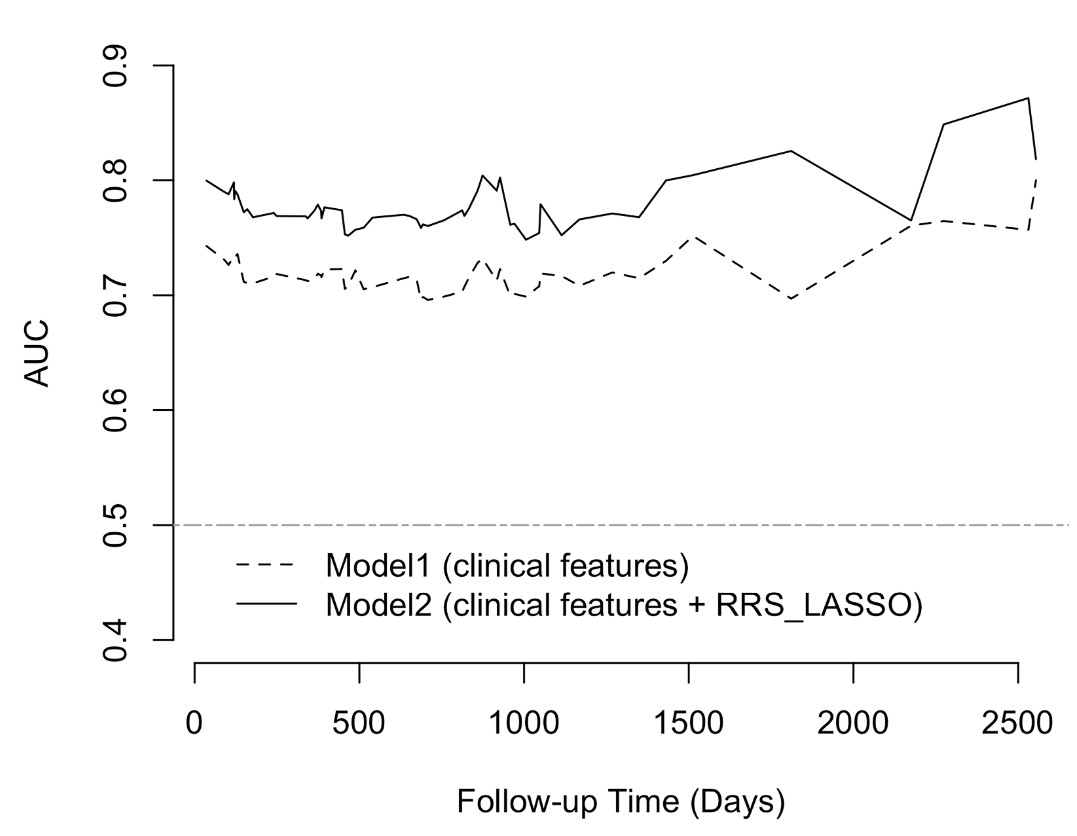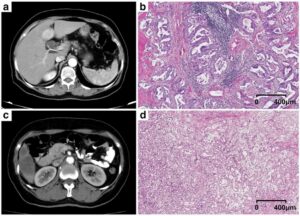This study aimed to evaluate whether radiomics from magnetic resonance imaging (MRI) would allow for the prediction of the overall survival in patients with isocitrate dehydrogenase wild-type (IDHwt) lower-grade gliomas. The authors of this study also investigated the added prognostic value of radiomics over clinical features. The authors found that radiomics has the potential for noninvasive risk stratification and can improve the prediction of overall survival of IDHwt lower-grade glioma patients when integrated with clinical features.
Key points
- Isocitrate dehydrogenase wild-type lower-grade gliomas with histologic grades II and III follow heterogeneous clinical outcomes, which necessitates further risk stratification.
- Radiomics risk scores derived from MRI independently predict survival even after incorporating strong clinical prognostic features (hazard ratios 6.148–9.479).
- Radiomics risk scores derived from MRI have the potential to improve survival prediction when added to clinical features (integrated areas under the receiver operating characteristic curves increased from 0.726 to 0.780–0.797).
Authors: Chae Jung Park, Kyunghwa Han, Hwiyoung Kim, Sung Soo Ahn, Yoon Seong Choi, Yae Won Park, Jong Hee Chang, Se Hoon Kim, Rajan Jain & Seung-Koo Lee













